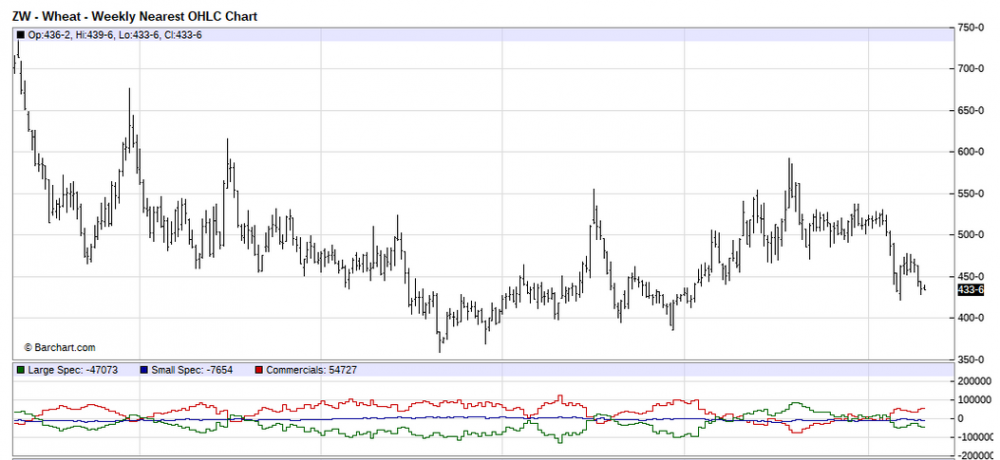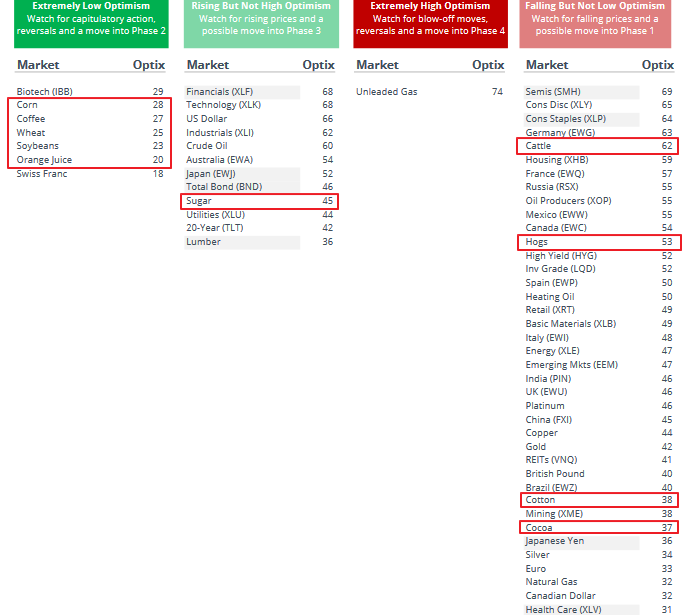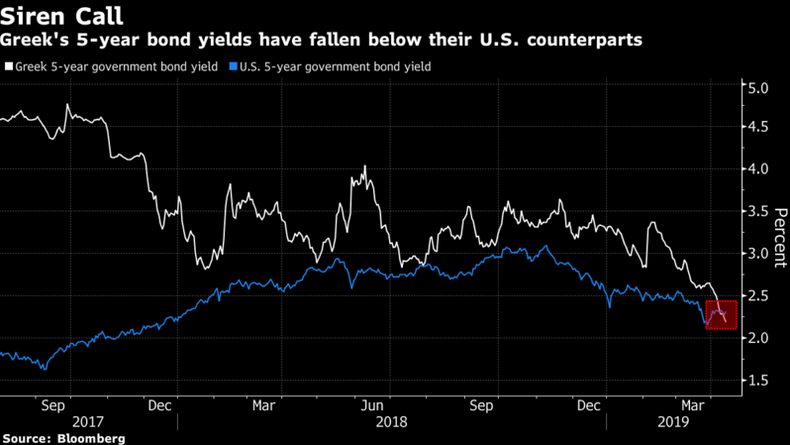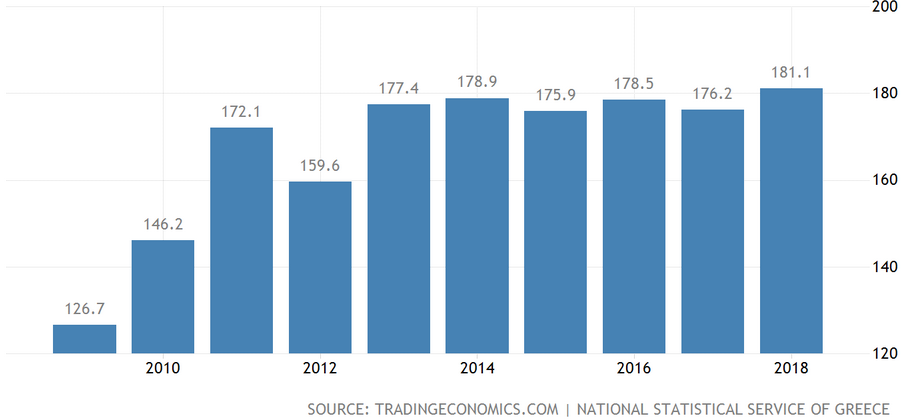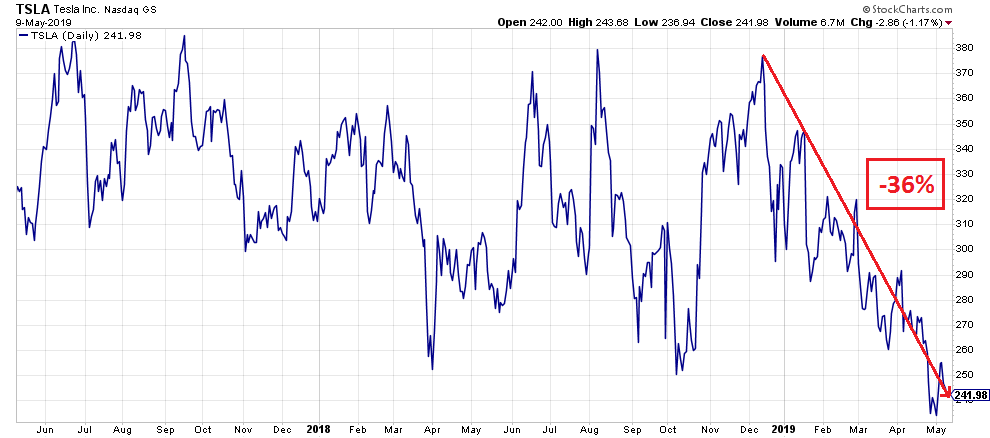Sri Lanka: Authorities were warned about upcoming attacks
In 2015, Trader21 stated in one of the interviews that in case of attacks, people often consider only the issue of victims and assassins. It rarely happens that someone tries to look at the topic more broadly and notice that assassins have sponsors, who want to scare the society. It often happens that politicians do not even interfere in the attacks in their own country, as long as it allows them to strengthen their power. It is not only about support, but also about the possibility of introducing laws that increase the level of public surveillance.
Q1 hedge fund letters, conference, scoops etc
Trader21’s opinion will be certainly rejected by majority. Meanwhile, we are dealing with another terrorist attack that seems to confirm his words.
During Easter terrorist attacks in Sri Lanka happened. Bombs exploded in many hotels and churches. More than 350 people died.
It soon turned out that Sri Lankan authorities has been warned about attacks. Prime Minister Ranil Wickremesinghe stated that it would be necessary to check why no appropriate preventive measures had been taken. In addition, President Maithripala Sirisen demanded the resignation of people who received a warning about the attacks from Indian agents three weeks before the tragedy, and they did not pass them on.
In other words: someone responsible for security had information about upcoming attacks, but nothing has been done to prevent them. Alternative version: authorities knew everything and decided to shed responsibility on individual officials.
If someone still does not believe that the majority of terrorist attacks have a hidden agenda, then we recommend to read what Hillary Clinton said about the support for Islamic State from the U.S. allies.
Finally, it is worth to ask: if surveillance of citizens is powerful, and attacks take place anyway, do we really need more restrictive laws? Are we becoming more safer by revealing to the politicians everything about ourselves?
Interesting situation on commodities market
Firstly we would like to mention wheat, in case of which, recent flood in the U.S. and droughts in China have a negative impact on its production. Media do not devote too much space to these events, instead they are happy to inform about abundant harvest in Germany or Russia.
Despite the problems in the U.S. and China, the wheat price has fallen in the recent weeks. At the same time, commercials (the best-aware group of investors) are placing bets that price of this commodity will increase. Below, we see a wheat chart for the last 5 years. The net position of commercials is denoted using red line below main graph.
Last time commercials have been so positive for wheat in January 2018.
In case of this investment, the issue is 15% contango. In other words: wheat should bounce at least 2-3 months after our investment, otherwise it will be very difficult to make profit.
It is worth to note that not only wheat looks appealing. In terms of other agricultural commodities, prices are also fairly low, with a good positioning of commercials and, importantly, considerable pessimism of investors. Table below shows level of optimism across various assets. Above 70 means very high optimism, while below 30 – extreme pessimism.
We marked agricultural commodities in red frames.
source: Sentimentrader
As you can see, the advantage of optimists applies only to hogs and cattle – their prices increase mainly due to swine fever in China.
In terms of other commodites, we see negative moods. Less than 30% of investors expect price increases in corn, coffee, soybeans, wheat and orange juice. In case of some of these commodities we are probably close to their historical lows.
In the U.S., more stores have been closed than in entire 2018
According to the Coresight Research report from January 1 to April 10 this year, 5994 stores were closed in the U.S. That is more than for the entire 2018.
There is no doubt that online trading is growing stronger and from year to year displaces the market traditional trading based on stationary stores. On the other hand, based on this one argument, you can not explain this year’s results.
What are the other reasons? First of all, labor costs which increased very much. As a result, enterprises need to look for savings, limiting the number of branches and move some of them to the more efficient premises.
Authors of the report claim that e-commerce will be gaining very strongly in the following years. In their opinion, the total number of stores closed in 2019 will amount to roughly 12 000.
In turn, UBS analysts estimated that trade via Internet, today covering 16% of the retail market, in 2026 will cover 25% of it. According to them, it will mean 75 000 stores closed until 2026 (including 20 000 clothing stores and 10 000 electronics stores).
German conservatism
We often write about central banks gold purchases. If we mention about the citizens demand, it is usually about India – the gold purchases are deeply rooted in their culture.
Now it’s time to catch up and provide statistics regarding the greatest economy in Europe.
The German Bundesbank reserves are quite significant, amounting to 3370 tons. Thus, Germany is one of the leading countries in this respect. Surprisingly, German citizens own even more gold than the Bundesbank. As a result, there are 8918 tonnes of gold in Germany, equivalent of 6.5% global reserves.
While Germany has neglected the issue of safetiness on their streets, they are definitely looking after their finance security. This is evidenced by the gold purchases, which are often disregarded in media. At this point, it has to be emphasized that:
- a) Central Banks gold purchases in 2018 were the largest in 50 years,
- b) Gold is the first asset acquired in the event of an attack on any country,
- c) Gold is a salvage for every investment portfolio during high inflation periods (and this is desirable by bankers and politicians).
Probably the gold purchases by the Germans are also triggered by huge uncertainty about Europe and Germany itself. During a recession, the eurozone survival may be put into question. If this would happen, then the gold price will significantly increase.
China enhances its influence in Africa
According to the Spotlight Zimbabwe, China is preparing to place its special forces in this country. This is another step towards the growing cooperation between China and Zimbabwe.
About a year ago, the same source reported that China installed new-generation missiles in Zimbabwe. The same that are present in the South China Sea. They are to protect the large mines of diamonds and gold.
At the same time, billions of dollars are being pumped to Zimbabwe by the Chinese, mainly into key sectors of the economy like mining, agriculture and telecommunications. All of this is officially a part of the New Silk Road.
Apparently, the Chinese well-calculated everything and they know that these activities will pay off. They certainly predict a rise in the gold price, and in addition, by providing loans to Zimbabwe, they are aware that there could be a situation where the African country will not be able to repay this debt. Then Beijing will demand payment in commodities.
It may turn out over time, that due to one investment, China has gained influence in a given territory, it has taken care of adequate infrastructure, created a military base and secured access to important resources.
The former Zimbabwean president, Robert Mugabe, accused the Chinese of aforementioned intentions and he rejected Beijing’s proposals during his election. However, we shouldn’t forget that Mugabe in recent years has contributed to the Zimbabwe’s collapse. The former leader was focused on socialist reforms and expropriation of white farmers. As a result, many of Zimbabweans died of hunger. Eventually, the Mugabe dictatorship came to an end, and the weakened nation became an easy target for China.
Seeing how “the Zimbabwe case” was played out, we are concerned that the situation in South Africa may develop in similar way. White farmers are also attacked, many of them are being murdered. Soon, people who have no idea about food production will have to care about it. Everything will end in a massive famine, and subsequently, South Africa influences will be taken over by one of the superpowers.
Greece borrows at a lower cost than the U.S.
Government bond yield is the cost at which individual countries can get into debt. The lower the bond yield, the less given country pays interest for borrowed money.
In accordance with common sense and the free market rules, countries that have little significance, a weak army or debt problems should pay higher interest. Why? Because we as investors, lending money to a given nation, take a greater risk. Let’s say that in the case of unstable country, we agree to borrow money in exchange for 8% interest per year. On the other hand, in case of a strong country, 3% interest could be sufficient.
In these healthy conditions, the bond market has functioned for decades, until 2008, when central banks have started to buy government bonds. This led to real distortions on the market. One of them has happened in April, when the yield of five-year Greek bonds (bankrupted nation without control over its own currency) fell below five-year U.S. bonds (powerful country issuing the most important currency in the world).
The chart below shows the Greek’s bond yields in white and the U.S. yields in blue.
How is that possible? Over the past few years, bond yields of euro bankrupts (such as Greece) has been artificially reduced due to the debt purchases by the European Central Bank. This way, the ECB saved, or rather delayed the bankruptcy of Greece, Italy and Spain. In turn, the April sharp decline in Greek yields was triggered by the information that the governments of the euro area countries agreed to grant Greece a further aid package amounting to 1 billion euros.
It is worth adding that next tranches of loans to Greece are in fact an abuse of this country. Lenders are constantly demanding from Greek government to tighten fiscal policy, which increases the burden on Greek citizens. As a result, the economy can not develop, and debt to GDP ratio is 181% – even higher than in 2011 (the beginning of Greece problems).
Looking back in time, it seems clear that joining the euro zone by Greece was a bad decision. After only a few years of economic growth, whole decade of problems has come and nothing indicates that it will be better in the future.
Tesla’s sharp drops
Past few weeks were not the best for Tesla investors. The quotations of the electric car manufacturer have been falling over last several months, and after the announcement of the Q1 2019 results, its share price fell to the lowest levels since nearly 2.5 years.
In December, Tesla share price was amounting to 380 dollars. Since that moment, the price has dropped by 37%.
source: stockcharts.com
This all happened in the period when the market was recovering (January – April).
In terms of the results – in the first quarter of 2019, Tesla incurred 702 million dollars loss. After conversion, it is 2.90 dollar loss per share. It was expected that the loss would be much smaller – 1.30 dollar per share.
Last autumn the quotes of automotive companies were falling, while Tesla was gaining, some investors claimed that this was due to the industry revolution. The electric cars demand was to ensure better results for Tesla. It turns out, however, that if economy weakens, then the fall in demand is embracing products that are supposed to bring something new. Especially, in the automotive sector, which is usually the first one which signals economic slowdown. Eventually, when the financial situation deteriorates, most of us do not decide to buy a car.
In the case of Tesla, however, there are also many other factors.
Anyway, we are still shorting Tesla, although we think that opening the short position right now does not make sense.
U.S.: Officials make a lot of mistakes
Improper payments – this is how the U.S. federal law determines payments made by the government:
- a) To the wrong person
- b) In the wrong amount,
- c) For the wrong reason.
The total value of such improper payments in the U.S. have amounted to 1.2 trillion dollars since 2004, which is an equivalent of one-third 2018 state revenues. Over the last year, those payments amounted to 140 billion dollars.
For comparison, it is worth adding that 140 billion dollars mentioned above would allow construction of 23 walls on the border with Mexico (assuming the cost of 6 billion dollars).
The scale of waste regarded many government institutions operations is often underestimated. These statistics leave no doubt that this play is fairly expensive part in functioning of the U.S..
However, it does not mean that the U.S. lost 1.2 trillion dollars – some funds were lost, some were recovered. All of this money is associated with mistakes that officials had to correct, devoting additional time. This extra work has to be rewarded. Of course, payments come from rest of the society taxes.
The more regulations are created, the greater the role of the country and its authorities. The greater the role of the state, the more officials. The more officials, the higher the costs for the rest of the society. The higher the costs of the society, the slower economic development. Western Europe is an excellent example of this absurd.
Article by The Independent Trader

